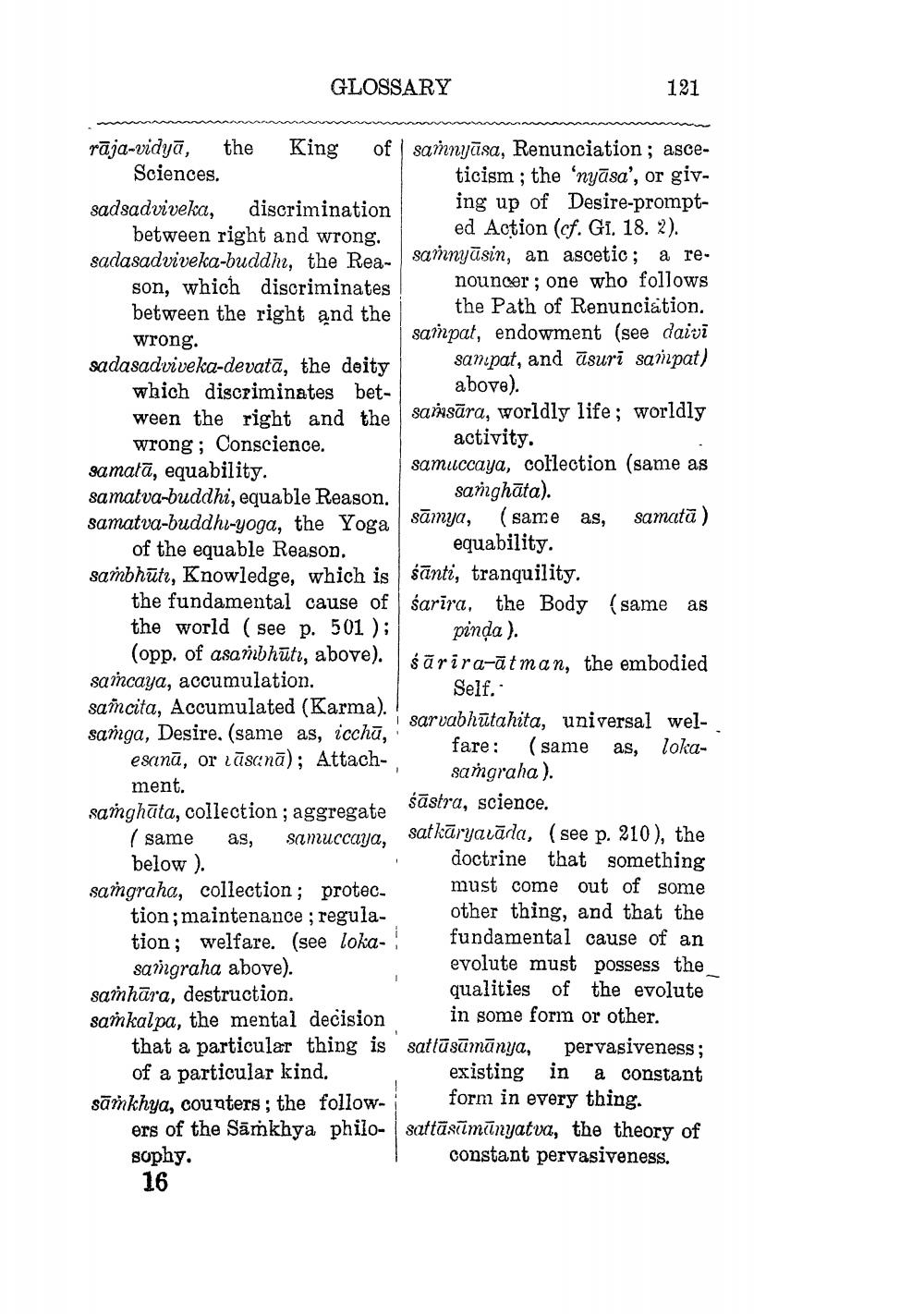________________
GLOSSARY
121
rāja-vidyā, the King of samnyāsa, Renunciation; asceSciences.
ticism ; the ‘nyāsa', or givsadsadviveka, discrimination
ing up of Desire-promptbetween right and wrong.
ed Action (cf. Gi. 18. 2). sadasadviveka-buddhi. the Rea- samnyūsin, an ascetic; a re. son, which discriminates
nouncer; one who follows between the right and the
the Path of Renunciation. wrong.
sampat, endowment (see daivi sadasadviveka-devatā, the deity
sanipat, and ūsuri sampat) which discriminates bet
above). ween the right and the
sarisūra, worldly life; worldly wrong; Conscience.
activity. samatā, equability.
samuccaya, collection (same as samatva-buddhi, equable Reason.
sanghāta). samatva-buddhi-yoga, the Yoga samya, (same as, samata ) of the equable Reason.
equability. sambhūti, Knowledge, which is sānti, tranquility.
the fundamental cause of sarira, the Body (same as the world (see p. 501 ); pinda).
(opp. of asambhūti, above). śārira-āt man, the embodied saincaya, accumulation.
Self. sancita, Accumulated (Karma).
i sarvabhūtahita, universal welsamga, Desire. (same as, icchū,
fare: (same as, lokaesanā, or Lāsanā); Attach
samgraha). ment. samghāta, collection; aggregate
śāstra, science. (same as, samuccaya, satkāryarāda, (see p. 210), the below).
doctrine that something sangraha, collection; protec
must come out of some tion; maintenance ; regula- other thing, and that the tion; welfare. (see loka- fundamental cause of an saigraha above).
evolute must possess the samhāra, destruction.
qualities of the evolute sankalpa, the mental decision
in some form or other. that a particular thing is sattūsāmānya, pervasiveness; of a particular kind.
existing in a constant sāmkhya, counters ; the follow
form in every thing. ers of the Samkhya philo- sattāstīmīnyatva, the theory of sophy.
constant pervasiveness. 16




